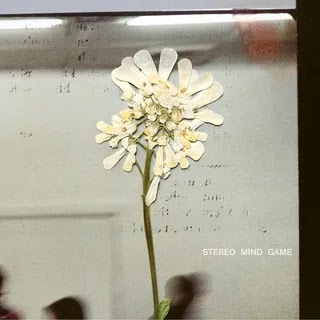On his solo debut, the Red River Dialect frontman explores personal, spiritual, and musical growth after his nine-month retreat at a Nova Scotia Buddhist monastery.
When David John Morris left his London home for Nova Scotia’s Gampo Abbey in October 2018, he knew he’d have to shelve his guitar for the next nine months. Life during his monastic retreat would consist of work, study, and meditation with the Buddhist monks in residence. The precepts of the community would also require him to abstain from sex, drugs, alcohol, and, most crucially for the prolific songwriter, playing music. Stepping away from his instrument marked the unlikely starting point of a process that yielded some of the strongest work of the Red River Dialect frontman’s career. His richly rendered solo debut, Monastic Love Songs, vibrates with the energy and intimacy of his stay at Gampo, and it seems to light a way forward for Morris as a songwriter.
A 2018 profile of Red River Dialect characterized Morris as someone who consciously tried to decouple his public persona as a musician from his professional, spiritual life as a Buddhist chaplain. Agreeing not to play instruments at Gampo tracks with this characterization of Morris as a kind of delineated self—the monk and the musician living in one body, but consciously kept separate. Yet in the final month of his residency, Morris requested a guitar and was granted permission to play it for one hour each day. The musician was becoming one with the monk, and the songs that flowed from that newly unified being reflect that harmony.
Monastic Love Songs feels like a reset button for Morris, whose albums with Red River Dialect had increasingly emphasized the rock side of the folk-rock equation over the past decade. As one might expect from an album written during a monastic retreat, his solo debut feels more meditative, its songs built around voice, acoustic guitar, and negative space. Morris has called Monastic Love Songs a spiritual sequel to Red River Dialect’s Tender Gold and Gentle Blue, another musically unembellished song cycle. Where that album’s palette often suggested desolation, the quietude of Monastic Love Songs evokes inner peace. “Rhododendron” sets Morris’s quavering vocal to a sparse but insistent guitar line as the sight of the title flower sends him into a reverie, an echo of Wordsworth with his daffodils. “I’ve been taking, now I’ll learn to give,” Morris sings, the vulnerability in his voice, once sorrowful, now recontextualized as openness. It’s one of many lyrics on the album that plays like a mantra.
With the exception of the slyly surrealist “Circus Wagon” and a new arrangement of the traditional ballad “Rosemary Lane,” every song on Monastic Love Songs is autobiographical. On “Purple Gold,” Morris recalls “listening to R.E.M., one earphone each” with his first teenage love, and on “Steadfast,” he finally finds brotherhood in a difficult relationship when he stops trying to force it. Elsewhere on the album, he sings directly of his experiences at the monastery. “Skeleton Key” narrates his journey through the self-discovery process Buddhists call the Bardo of Becoming: “Old self died, new self not yet born.” The luminous closing track, “Inner Smile,” was originally written as a poem of thanks to Morris’s beloved tai chi teacher. Set to music, it becomes an object of pure beauty and lightness. The common thread through the album is love—love for oneself, for one’s fellow humans, for the Buddhist practice.
The sessions for Monastic Love Songs took place at Montreal’s Hotel2Tango studios just days after Morris left Gampo. Thor Harris (Swans) and Thierry Amar (Godspeed You! Black Emperor) sat in on drums and bass, and their performances are quietly crucial to the album. They sound preternaturally comfortable staying in the pocket and letting Morris guide their playing, only swelling to crescendo when the emotions of the song demand it. Morris may consider the album a sequel to Tender Gold and Gentle Blue, but his collaborators, paradoxically, help make it feel like a true solo record.
















0 comments:
Post a Comment